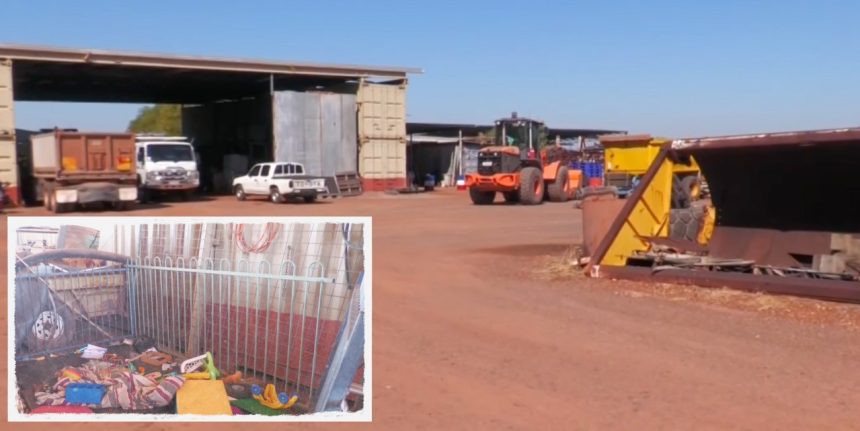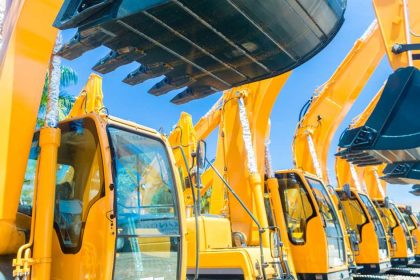Investigations are underway after a toddler was allegedly found “locked in a cage” at a worksite earlier this month.
The young boy has made international headlines in the last 24 hours after it was claimed he was being inappropriately secured in a makeshift enclosure at a Northern Territory industrial site off the Stuart Highway.
Six police cars stormed the rural property last week, believed to have been tipped off by one of the site’s contractors who had witnessed the situation.

The incident has since sparked ongoing investigations by both Territory Families and NT Worksafe, who yesterday confirmed they are “aware” and “looking into it”.
However, the site’s owner has now fought back against the allegations, claiming the incident is simply a “storm in a teacup” scenario resulting from difficulties in one of the site’s workers being unable to source appropriate childcare for his son.
Ken Martin told Sky News that rather than a “cage”, the two-to-three year old was kept in a makeshift playpen filled with toys while his father worked nearby.
“The reason he was here was because none of the childcare would take him as he has had some food allergies,” Mr Martin told Sky News.
“The child was here in a three-and-a-half meter by two-and-a-half meter play area, and it had all gym mats at the bottom.”
This is just a storm in a teacup…
Ken Martin – industrial site business owner
Ken said the child had been secured safely at the site for almost 12 months, allowing his father to still earn a living.
“We are an industrial business; if you have a child here, they must be safe; safety is my number one priority.”


Police were quick to cease their side of the investigation with no charges laid; however, they decided to raise concerns with NT WorkSafe.
“NT Police has raised a safety concern after receiving reports that a young child had been secured in inappropriate conditions at a worksite,” an NT WorkSafe spokesman said.
“NT WorkSafe Inspectors have commenced an inquiry into (the) incident.”
Territory Families are also still looking into the incident and stated that every Territorian is mandated to “report your concerns if they believe a child is being or has been, harmed or abused”.
“The safety of children is our top priority, and we take seriously any allegation of child harm,” a Territory Families spokeswoman said.
“This includes police who can report suspected harm to our department,” the spokeswoman said.
“We work with children, families, communities, police and relevant agencies to assess and respond to any reports of suspected harm to children.”

However, site owner Ken contends that Territory Families’ involvement is now simply to help the father find an appropriate childcare solution for a situation he says isn’t representative of child abuse but merely a father trying to make ends meet during a cost-of-living crisis.
“Everybody now has seen the error of the problem, and they’re trying to help the child get to a conclusion and get him into a childcare, which would be fantastic,” he said.
“We believe that good is coming out of it.”
Can I bring my child to work?
While the work site may have dodged police action, the business could still find itself in hot water with WorkSafe NT with the law requiring people in high-risk workplaces such as construction and job sites to be trained, competent and capable.
If inspectors find untrained or unlicenced people on site, such as children, this can result in warnings, financial penalties and possibly legal action.
However, exceptions do apply, such as children over 14 who can be taken to the construction sites, provided they are appropriately supervised, have evidence of adequate training and have obtained their white card.
Why are safety risks greater for kids?
Statistics from Safe Work Australia show that tradies, labourers, and machine operators are more susceptible to workplace accidents, with people in those jobs accounting for half of serious workplace insurance claims.
Meanwhile, research from Hipages showed electricians and builders are the most likely of all the tradies to be injured at work.
And with statistics showing young workers are more likely to be injured at work than older ones, it’s no wonder bringing children on-site is extremely risky.
A spokesperson for Queensland Industrial Relations said a child or young person’s “lack of risk awareness, desire to try new things, and lack of accrued job skills made them higher risk than fully qualified adults”.







